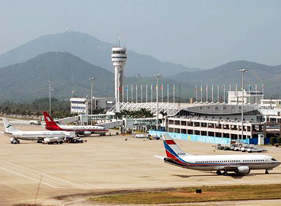Tourism booms: trillion dollars now in international tourism economy

China on the up and up
Tourism hits new records : where does all that money come from and where does it go?
In 2011, international tourism receipts exceeded US$ 1 trillion for the first time, up from US$ 928 billion in 2010. In real terms, receipts grew by 3.8%, following a 4.6% increase in international tourist arrivals. An additional US$ 196 billion in receipts from international passenger transport brought total exports generated by international tourism in 2011 to US$ 1.2 trillion.
BRIC countries source market strong demand – China spends another 18bn putting it in third place as tourism source market expenditure after Germany and USA.
SEE: World’s Top Source Markets by International Tourism Expenditure
According to the latest UNWTO World Tourism Barometer, international tourism receipts hit new records in most destinations, reaching an estimated US$ 1,030 billion (euro 740 billion) worldwide, up from US$ 928 billion (euro 700 billion) in 2010. In real terms (adjusted for exchange rate fluctuations and inflation), international tourism receipts grew by 3.8%, while international tourist arrivals increased by 4.6% in 2011 to 982 million. This confirms the close correlation between both indicators, with growth of receipts tending to lag slightly behind growth of arrivals in times of economic constraints.
"These are encouraging results," said UNWTO Secretary-General, Taleb Rifai. "The past two years have shown healthy demand for international tourism out of many markets, even though economic recovery has been uneven. This is particularly important news for countries facing fiscal pressure and weak domestic consumption, where international tourism, a key export and a labour intensive activity, is increasingly strategic to balancing external deficits and stimulating employment."
"We trust that governments worldwide will progressively recognize this and engage in measures that support tourism including fairer tax policies and the facilitation of visas and travellers’ movements, as these have proven to stimulate economic growth and job creation," he added.
By regions, the Americas (+5.7%) recorded the largest increase in receipts in 2011, followed by Europe (+5.2%), Asia and the Pacific (+4.3%) and Africa (+2.2%). The Middle East was the only region posting negative growth (-14%).
SEE: World´s Top Destinations by International Tourism Receipts
Europe holds the largest share of international tourism receipts in absolute numbers (45% share), reaching US$ 463 billion (euro 333 bn) in 2011, followed by Asia and the Pacific (28% share or US$ 289 billion/euro 208 bn), and the Americas (19% share or US$ 199 billion/euro 143 bn). The Middle East (4% share) earned US$ 46 billion (euro 33 bn) and Africa (3% share) US$ 33 billion (euro 23 bn).
Tourism also generates export earnings through international passenger transport. The latter amounted to an estimated US$ 196 billion in 2011, bringing total receipts generated by international tourism to US$ 1.2 trillion, or US$ 3.4 billion a day on average.
As a result, international tourism (travel and passenger transport) currently accounts for 30% of the world’s exports of services and 6% of overall exports of goods and services. As a worldwide export category, tourism ranks fourth after fuels, chemicals and food, while ranking first in many developing countries.
Many source markets generated strong demand in 2011. However, it was the BRIC countries (Brazil, Russia, India, China) that continued to stand out. China’s expenditure on international tourism increased by US$ 18 billion to US$ 73 billion, the Russian Federation increased by US$ 6 billion to US$ 32 billion, Brazil by US$ 5 billion to US$ 21 billion and India by US$ 3 billion to US$ 14 billion. Together, their increases accounted for an additional US$ 32 billion, a value equivalent to the eighth largest source market by expenditure. Of the advanced economy source markets, Germany, Australia, Norway, Belgium and Canada reported the biggest absolute growth.
Increases in receipts in emerging and advanced economy destinations alikeBoth advanced and emerging economy destinations benefited from the 2011 growth in arrivals and receipts. Destinations where international tourism receipts grew by US$ 5 billion or more in absolute terms include the United States (increasing by US$ 13 bn to US$ 116 bn), Spain (by US$ 7 bn to US$ 60 bn), France (by US$ 7 bn to US$ 54 bn), Thailand (by US$ 6 bn to US$ 26 bn) and Hong Kong (China) (by US$ 5 bn to US$ 27 bn).
SEE: UNWTO World Tourism Barometer
Valere Tjolle
This week special destination offer HERE
Keep up with the latest sustainable tourism info, special offers HERE
 United Kingdom
United Kingdom United States
United States Asia Pacific
Asia Pacific












































EU airports bring back 100ml liquid rule
British Airways passengers endure 11-hour 'flight to nowhere'
CLIA: Anti-cruise demos could cause itinerary changes in Europe
Co-pilot faints, easyJet flight issues ‘red alert’
Gatwick braces for strike